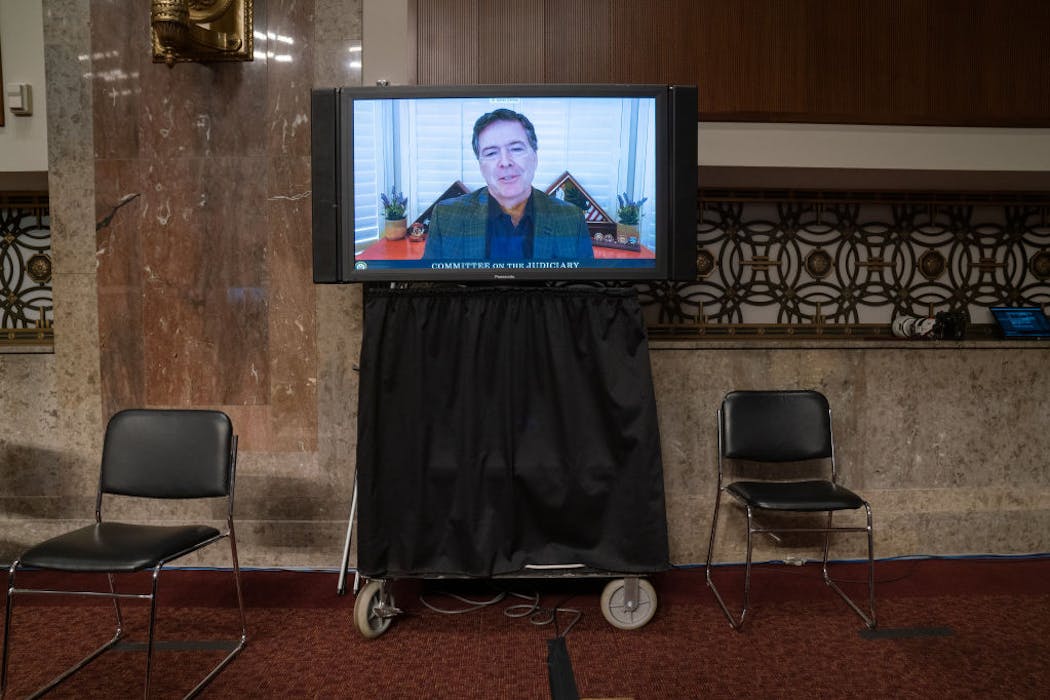
A federal judge on Nov. 24, 2025, dismissed the indictments against former FBI Director James B. Comey and New York Attorney General Letitia James, blocking the Department of Justice’s efforts to prosecute two of President Donald Trump’s perceived adversaries.
But U.S. District Judge Cameron McGowan Currie qualified her dismissals, saying she did so “without prejudice.”
What does that legal term mean?
Unaddressed charges
In her ruling, Currie concluded that the appointment of interim U.S. Attorney Lindsey Halligan, who filed the cases against Comey and James, was unlawful. Currie wrote:
“Because Ms. Halligan had no lawful authority to present the indictment, I will grant Mr. Comey’s motion and dismiss the indictment without prejudice.”
She wrote the same about the case against James.
Currie’s “without prejudice” reference means the dismissal did not address what legal scholars like me call the merits or substance of the underlying criminal charges.
A “without prejudice” dismissal is legalese for “you can try again if you can fix the problems with your case.” Had the judge ruled that the dismissals were “with prejudice,” that would have meant the government could not have brought the cases again.
Here’s what prosecutors would need to fix to be able to bring cases against Comey and James again.
Federal law provides that whenever a U.S. attorney’s position is vacant, the attorney general may appoint an interim U.S. attorney for a period of 120 days. At the end of that period, it’s up to the federal judges of the district where that position is vacant to appoint someone to continue in that role unless and until the president nominates, and the Senate confirms, a U.S. attorney through the normal appointments process.

The Trump administration appointed Halligan’s predecessor, U.S. Attorney Erik Siebert, in that interim role in January 2025. And when the 120 days from his appointment lapsed, the district judges of the Eastern District of Virginia selected him to continue on in his interim role.
Currie found that when Siebert resigned after his reappointment, that did not empower the Trump administration to appoint a new interim prosecutor. The power still resided with the District Court judges. Because of that, Halligan’s appointment and her efforts to secure the Comey and James indictments were void.
The end of the beginning
The Department of Justice can certainly appeal these rulings and could get them reversed on appeal, or it could refile them after a new U.S. attorney is named in accordance with law.
It may be too late for the case against Comey, however, because the statute of limitations on those charges has already run out. As Currie noted in her Comey ruling, while the statute of limitations is generally suspended when a valid indictment has been filed, an invalid indictment, like the one against Comey, would not have the same effect on the statute of limitations.
That means the time has likely run out on the claims against the former FBI director.
If Currie’s rulings stand, the Justice Department can’t just file the cases again, with Halligan still in this role, unless the Trump administration follows the procedures set forth in the law for her proper appointment.
While this is not the beginning of the end for these prosecutions, it is, at least, the end of the beginning.
This article is republished from The Conversation, a nonprofit, independent news organization bringing you facts and trustworthy analysis to help you make sense of our complex world. It was written by: Ray Brescia, Albany Law School
Read more:
- James Comey’s indictment is a trademark tactic of authoritarians
- James Comey’s lawyers face an uphill battle to prove selective or vindictive prosecution in his high-profile case
- For Trump’s perceived enemies, the process may be the punishment
Ray Brescia does not work for, consult, own shares in or receive funding from any company or organization that would benefit from this article, and has disclosed no relevant affiliations beyond their academic appointment.


 The Conversation
The Conversation
 Local News in New York
Local News in New York Raw Story
Raw Story Reuters US Domestic
Reuters US Domestic Reuters US Top
Reuters US Top RadarOnline
RadarOnline AlterNet
AlterNet